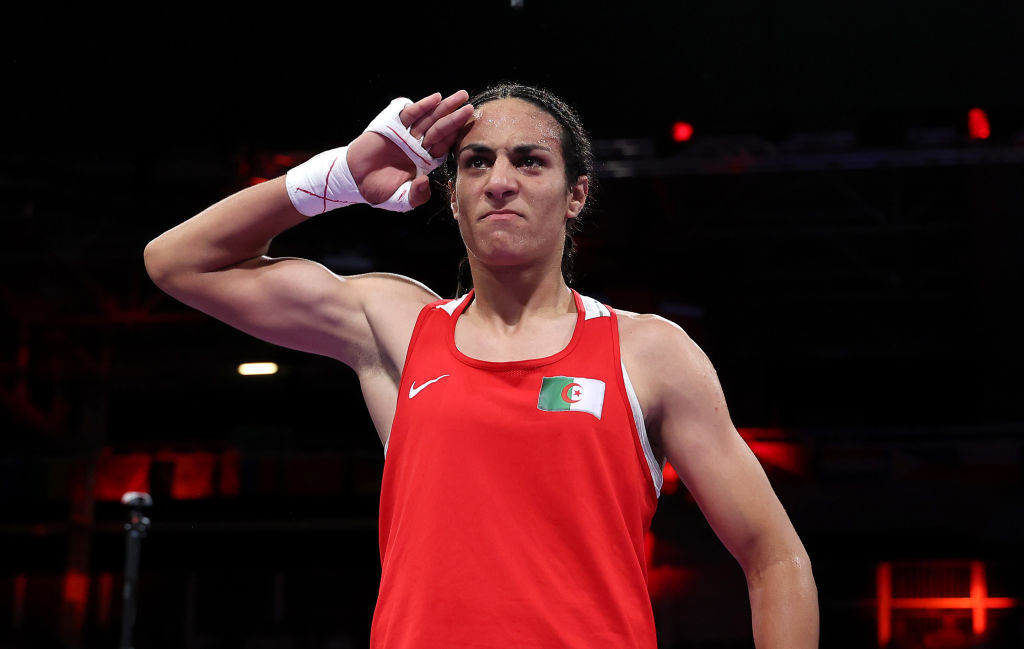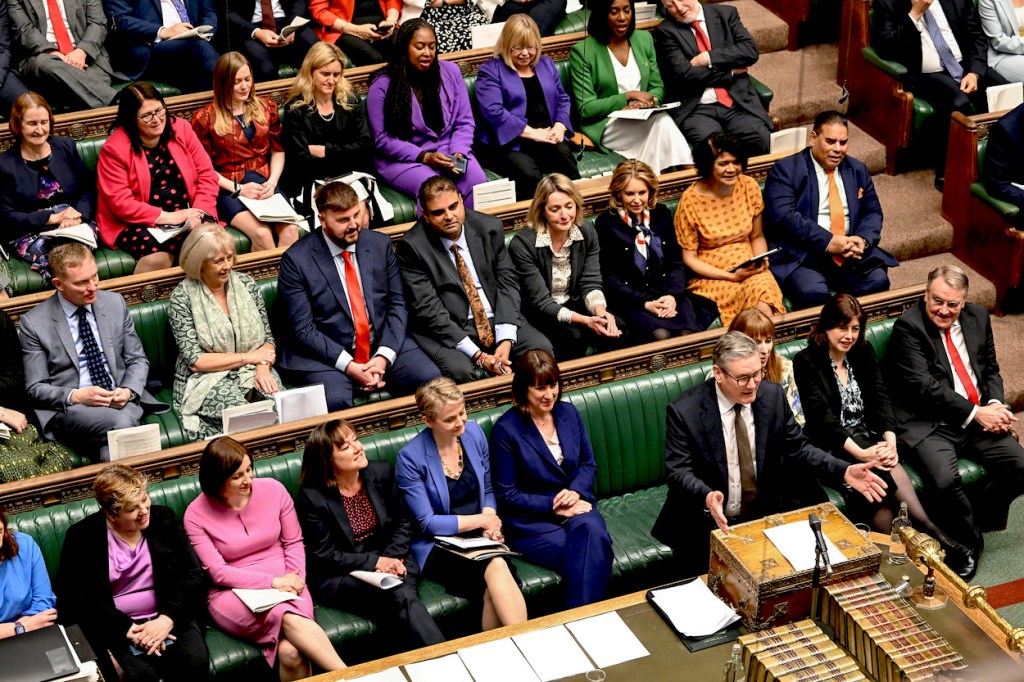The International Olympic Committee looks set to ban males who identify as trans from all female sports after a review of the scientific evidence. World Athletics announced a similar ban way back in March 2023, but athletics is only one of the constellation of sports that make up the summer and winter Olympics.
To say we should not presume male advantage in a sport unless we have specific data for that sport is like arguing that just because most of the apples in a tree have fallen to the ground, we shouldn’t presume the remaining apples are also subject to gravity
The news follows a presentation last week by Dr Jane Thornton, the IOC’s medical chief, which described the many physical advantages retained by males undergoing testosterone suppression. These physical advantages are not subtle. Greater height is a considerable advantage in basketball. Longer arms make it easier to punch an opponent or reach across a pool table. Longer arms means longer levers, multiplying the force that can be applied. Larger hearts and lungs increase aerobic capacity. The shape of women’s hips enable them to survive childbirth but compromise their running speed.
Trans activists like to argue that sport is never a level playing field and winners often have some genetic advantage that others might see as unfair. For example, swimmer Michael Phelps won a total of 28 Olympic medals, due in part to his 6’7’’ wingspan and his famously massive hands. What trans activists are less keen to admit is that Phelps massive hands are just one of the tell-tale signs that he is male.
The IOC first allowed trans-identifying males to compete in women’s sports in 2003. The decision was made by an ad-hoc committee of six men and one woman. These professors consulted outside experts and carefully debated the thorny question: ‘For how long will the hormonal influence of the earlier puberty be of importance?’ Yet despite all this expertise, they missed the only possible correct answer: forever.
The 2003 rules only allowed trans-identifying males to compete as women if they had undergone surgical removal of their testes. But this was simply the beginning of a campaign with an end goal of allowing trans-identifying males to compete in the women’s category entirely on the basis of self-ID. And in 2015, the rules were weakened to allow fully intact males to compete as women so long as they lowered their testosterone levels.
The strategy for trans activists was a simple one. It was, and is, ethically indefensible to insist that someone has their testicles surgically removed in order to compete in a sporting category. Sporting bodies should not incentivise life-changing surgeries. The medical specialists who recommended this were guilty of a profound ethical failure.
So once they had made this decision, it was relatively simple to use human rights law to argue that any such restrictions must be lifted. In 2015 the experts at the IOC successfully performed the necessary doublethink to declare that requiring a gonadectomy was a human rights violation but that testosterone suppression was still required.
In 2021 the IOC published new principles which argued for an evidence-based approach to trans inclusion. This sounds, on the face of it, like an excellent idea, but it was fatally undermined by an additional principle: ‘No presumption of advantage’. As a result of this principle, the IOC’s guidance required that peer-reviewed evidence of male advantage be provided separately for every sport and at every different level of competition. This violates a fundamental principle of science: Occam’s Razor, or the principle of parsimony.
Occam’s Razor requires that when choosing between possible models, a scientist should pick the simplest model that is consistent with the data. We used to believe that the planets, the sun and stars all rotated the earth once a day, a process that requiring coordination on an interstellar scale. Copernicus’s model of the solar system explained all of this with one simple fact: the earth rotates. This is why scientists prefer Copernicus’s theory to Ptolemy’s over-elaborate epicycles.
In just about every sport it is glaringly obvious that larger lungs and longer levers bring physical advantage. To say we should not presume male advantage in a sport unless we have specific data for that sport is like arguing that just because most of the apples in a tree have fallen to the ground, we shouldn’t presume the remaining apples are also subject to gravity.
In their bid to obfuscate the science of sex-advantage in sport, activists have exploited the general public confusion about athletes with differences of sexual development (DSDs), also known as intersex conditions.
The 800m runner Caster Semenya has a rare condition, 5-ARD, which only affects males. Babies with 5-ARD may be born without external male genitalia but with internal testes. These testes produce testosterone and athletes like Semenya underwent male puberty, with all the sporting performance advantages this brings. All three athletes on the podium of the women’s 800m at Rio 2016 are believed to have had similar DSDs. When Semenya exploded onto the women’s athletics scene it soon emerged that they were male. Yet, even if like me, you are regularly glued to the BBC athletics coverage, it is very likely that you know absolutely none of this.
People with DSD do not deserve to be vilified. But if they exploit their male advantage to take away women’s opportunities in sports then there are limits to public sympathy. If Imane Khelif, who won a gold medal in women’s boxing in the 2024 Olympics, competed in the male category, I would applaud him. But having watched him unapologetically punch a succession of women in search for an underserved Olympic medal I am forced to the conclusion that while he is not a woman, nor is he a gentleman.
The IOC is right that athletes with DSD deserve more careful consideration than males who identify as trans. However, in the case of 5-ARD it is well understood that this condition brings significant performance advantage, and it should be a fundamental ethical principle that athletes are not encouraged to have unnecessary medical interventions to compete. This means that athletes with 5-ARD should not be allowed to compete in the female category. This is in the best medical interests of the athletes and will also spare them the risk of public opprobrium.
If it is true that the IOC is going to finally start following the science, then I can only applaud this. Sports scholars and female athletes have been trying to explain male advantage to the IOC for over a decade. Is it cynical to observe that the IOC appears to have noticed the science at precisely the time Trump has begun to wield influence over the 2028 Los Angeles Olympics? It is a pity that it takes one man to change this policy, when you might have thought that the needs of half the world’s population would have been enough to swing it.
The IOC’s talk of science always has been just a smokescreen. Males were not able to become female even in 2003, even if they had their testicles removed. It shouldn’t need a scientist to tell you that in order to compete in the women’s category, you need to be a woman.







Comments